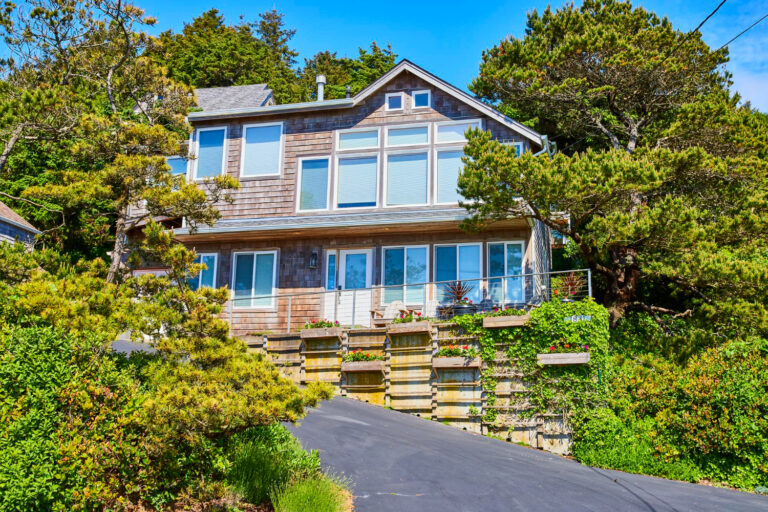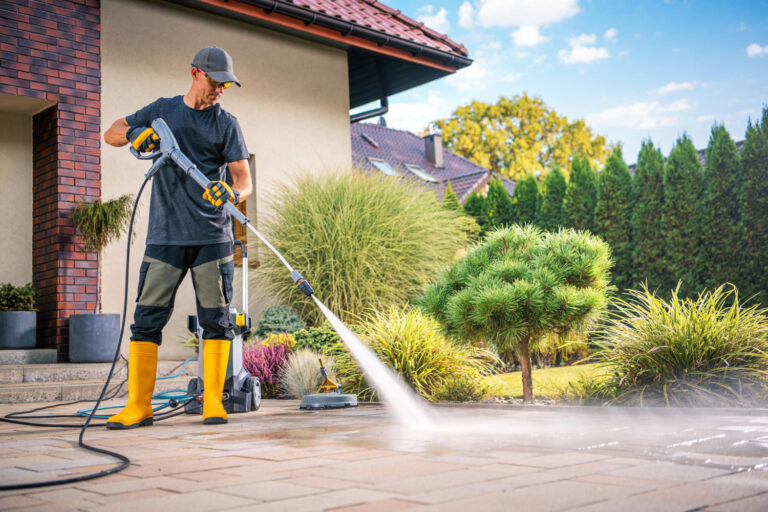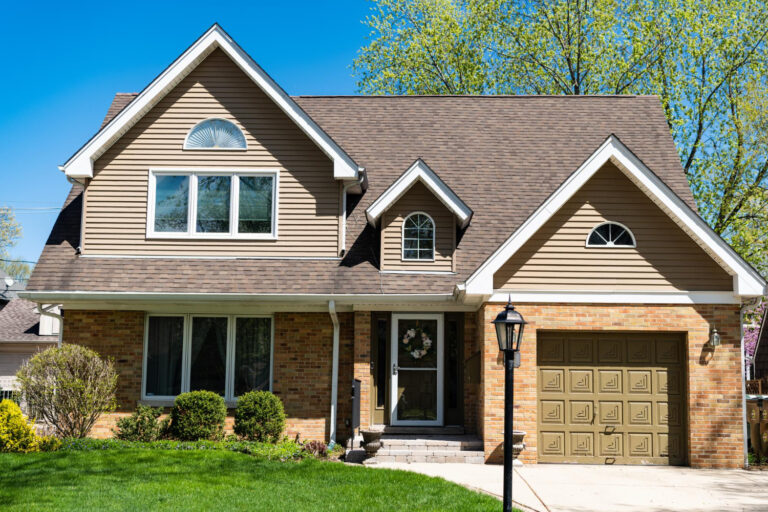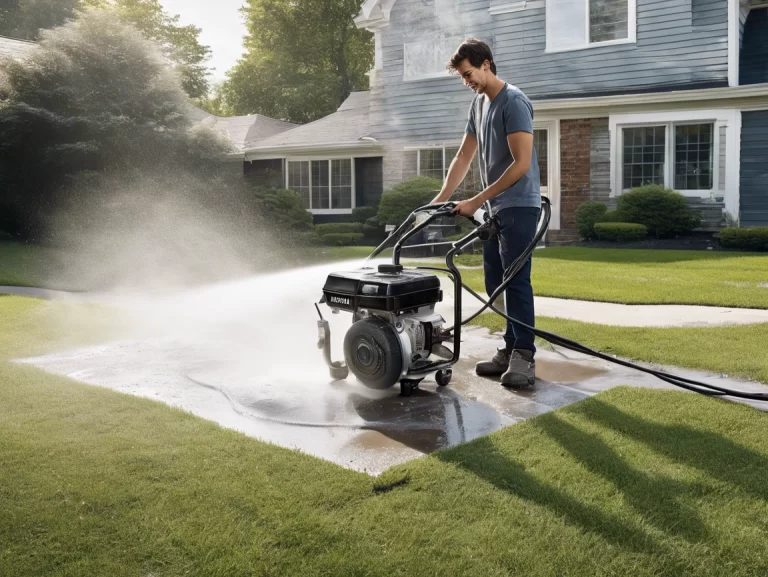Master Local SEO for Your Pressure Washing Website

Master Local SEO for Your Pressure Washing Website

In pressure washing, getting noticed online can be as challenging as removing stubborn grime. I've learned that mastering local SEO for your pressure washing website is crucial to stand out in Google search results and attract customers in your service area. It's not just about having a great website; it's about ensuring the right people find you when they need your services.
We'll explore key strategies that have helped me boost my online presence and generate more leads. From conducting a local SEO audit to implementing a solid content strategy, I'll share practical tips on optimizing your website structure, building local links, and leveraging Google My Business. These techniques have been game-changers for my pressure-washing business, and I'm excited to show you how they can transform yours, too.
Conduct a Local SEO Audit
I've learned that conducting a local SEO audit is crucial for boosting my pressure-washing website's visibility in Google search results. It's like giving your online presence a thorough scrub-down to ensure it shines in local searches. I will walk you through the process that's helped me improve my rankings and attract more customers in my service area.
Analyze current local rankings.
First, I check where my pressure washing website stands in local search results. I use tools like Google Search Console to see which keywords I'm ranking for and how high up I appear. It's essential to look at the organic results and the Google Map pack, as they're both critical for local SEO success.
I also pay close attention to my Google My Business (GMB) listing. This is a big deal for local SEO, and I make sure it's fully optimized with accurate information about my pressure washing services, hours, and contact details. An up-to-date GMB profile can boost my chances of appearing in those coveted map results.
Could you identify areas for improvement?
Once I know where I stand, I start looking for ways to climb higher rankings. I focus on a few key areas:
On-page SEO: I ensure that my website's content, meta descriptions, and headers include relevant local keywords, such as “pressure washing services in [my city].”
NAP consistency: I double-check that my business Name, Address, and Phone number are the same across all online platforms. This consistency helps Google trust my business information.
Local citations: I seek opportunities to list my pressure washing business on local directories and industry-specific sites. These citations act like little votes of confidence for my business in the eyes of search engines.
Reviews: I encourage happy customers to leave reviews and respond to all feedback, good or bad. This engagement shows Google that my business is active and cares about customer satisfaction.
Website speed and mobile-friendliness: I use tools like Google's PageSpeed Insights to check if my site loads quickly and works well on mobile devices. These factors can have a significant impact on local SEO.
Set measurable goals
With a clear picture of where I stand and what needs improvement, I set specific, measurable goals for my local SEO efforts. For example:
• Improve my ranking for “pressure washing services [my city]” from page 2 to the top 5 results within three months.
• Increase the number of positive reviews on my GMB listing by 50% in the next quarter.
• Boost my website's mobile loading speed by 30% in the next two months.
By setting these concrete goals, I can track my progress and see the real impact of my local SEO work. It's not just about climbing rankings; it's about generating more leads and growing my pressure-washing business.
To remind you, local SEO is an ongoing process. I regularly audit my online presence and adjust my strategy as needed. This consistent effort has helped me stay ahead of the competition and keep my pressure washing services visible to potential customers in my area.
Optimize Your Website Structure for Local SEO
I've learned that optimizing your website structure is crucial for boosting your local SEO efforts. It's not just about having a great-looking site; it's about ensuring it's set up so search engines can easily understand and rank. Here's what I've found works well for my pressure-washing website:
Create location-specific landing pages
One of the best things I've done for my local SEO is creating separate pages for each area I serve. For example, I have a page for “Pressure Washing Services in [My City].” These pages allow me to target specific locations and rank better for local searches.
On these pages, I discuss the pressure washing services I offer in that area and include information about the location, such as local landmarks or interesting facts. This helps make the page more relevant to search engines and potential customers.
Could you implement a local business schema?
Adding local business schema to my website has been a game-changer. It's like giving Google a cheat sheet about my pressure-washing business. Local business schema is structured data that provides search engines with detailed information about your business, such as your name, address, phone number, and operating hours. I use JSON-LD format (as recommended by Google) to include these details on my website.
This structured data helps search engines understand my business better, which can lead to improved visibility in local search results. It's also great for voice search optimization, making it easier for digital assistants to find and share their business information.
Optimize title tags and meta descriptions.
I pay close attention to my title tags and meta descriptions, often the first things potential customers see in search results. For my location pages, I make sure to include the service and location in the title tag, for example, “Professional Pressure Washing in [City Name] | [My Company Name].”
In the meta description, I briefly highlight what makes my pressure washing service unique in that area and include a call-to-action. This helps improve click-through rates from search results pages.
I've also found it helpful to use header tags (H1, H2, H3) to organize my content. This makes it easier for visitors and search engines to understand the structure of my pages.
By implementing these strategies, I've seen a significant improvement in my local search rankings. My website appears more often in Google search results when people look for pressure washing services in my area. This has led to more leads and, ultimately, more business for my pressure-washing company.
Remember, optimizing your website structure for local SEO is an ongoing process. I regularly update my content, add new location pages as I expand my service area, and keep my schema markup up-to-date. It takes some effort, but the results are well worth it for my pressure-washing business.
Leverage Local Link Building Opportunities
I've found that building local links is a game-changer for boosting my pressure-washing website's visibility in Google search results. It's all about creating connections within your community that translate into online authority. I want to share some strategies that have worked wonders for my business.
Sponsor local events
Sponsoring local events has been a fantastic way to get my pressure-washing business noticed. I look for opportunities like community festivals, charity runs, or school fundraisers. By contributing, I support my community and earn valuable backlinks to my website.
For example, I once sponsored a local Little League team. On their team page, they added my business logo and a link to my website. This improved my local SEO and got my brand in front of potential customers who are invested in the community.
Remember, when you sponsor an event, always ask for a link to your website. It's a win-win situation – the event gets support, and you get a valuable local link.
Join local business associations.
Joining local business associations has been another effective strategy for building links and expanding my network. I'm a member of my city's Chamber of Commerce and a local small business alliance. These memberships often come with a listing on the association's website, which means another quality local link for my pressure washing business.
But it's not just about the link. These associations often host networking events where I've met other local business owners. These connections have led to partnerships and referrals, which have been great for growing my business.
Create locally-relevant content
Creating content relevant to my local area has been a powerful way to attract links naturally. I write blog posts about local events, share tips for maintaining properties in our specific climate, and even create guides for homeowners in my service area.
For instance, I wrote an article titled “How to Prepare Your [City Name] Home for Spring, ” which included pressure washing tips. Local real estate agents found it helpful and linked to it from their websites, giving me valuable backlinks and exposure to potential customers.
I also optimize my content for local SEO by including location-specific keywords like “pressure washing services in [My City].” This helps me appear in local search results and attract more customers in my service area.
By implementing these local link-building strategies, I've seen a significant improvement in my website's visibility in local search results. It's not just about climbing rankings; it's about building real connections in my community that translate into more leads and growth for my pressure-washing business.
Implement a Local Content Strategy
Implementing a local content strategy has been a game-changer for my pressure-washing website. It's all about creating content that resonates with my local audience and helps me appear in Google search results when people in my area are looking for pressure washing services. I want to share some strategies that have worked wonders for my business.
Develop a local content calendar.
Creating a content calendar has been crucial for staying consistent with my local SEO efforts. I start by choosing one social media platform to focus on to spread myself evenly. For me, it's been Facebook, where I post three times a week. Remember, quality beats quantity every time!
When planning my content, I mix it up with educational posts (like how-to's and DIY tips), trending topics related to pressure washing, and personal stories about why I started my business. This blend keeps things fresh and engaging for my local audience.
I also use tools like Google Trends to see what people in my area are searching for related to home services. This helps me generate ideas that are relevant to my local community.
Create location-specific blog posts.
Writing blog posts focusing on my service area has been a powerful way to boost my local SEO. I create separate pages for each city or neighborhood I serve, with titles like “Professional Pressure Washing in [City Name]” or “Driveway Cleaning Services in [Neighborhood].”
In these posts, I include information about local landmarks, talk about specific challenges homeowners in the area face (like dealing with our local climate), and share tips for maintaining properties in our region. This helps me rank higher in local searches and shows potential customers that I understand their needs.
Optimize images with local alt text.
I've learned that optimizing images is crucial for both SEO and user experience. When I add photos to my website or blog posts, I always include alt text that describes the image and incorporates local keywords.
For example, instead of just using “pressure washing” as alt text, I'll use something like “pressure washing a driveway in [City Name].” This helps my images appear in local Google image searches and adds another layer of local relevance to my content.
I also use high-quality, original images of my work. Before-and-after photos of local projects are especially effective. They showcase my skills and help potential customers visualize what I can do for their property.
By implementing these local content strategies, I've seen a significant improvement in my website's visibility in local search results. It's not just about climbing rankings; it's about connecting with my community and showing that I'm our area's go-to pressure washing service. This approach has helped me generate more leads and grow my business in my backyard.
Conclusion
Mastering local SEO for your pressure-washing website significantly impacts your online visibility and business growth. By implementing the strategies we've discussed, from conducting thorough audits to creating locally relevant content, you're setting yourself up for success in the competitive world of local search. These techniques can boost your rankings, attract more customers, and ultimately grow your pressure washing business in your service area.
Remember, local SEO is an ongoing process that requires consistent effort and adaptation. As you apply these strategies, keep track of your progress and be ready to adjust your approach based on what works best for your specific market. Consider signing up for a free SEO audit to take your local SEO efforts to the next level. No website? No problem – we'll build and host one for you. Let's promote your company and help you grow organically on Google. Contact [email protected]. By staying committed to your local SEO strategy, you'll be well-positioned to outshine your competitors and become your community's go-to pressure-washing service.
FAQs
1. What are effective methods for acquiring pressure-washing clients?
To attract clients for your pressure washing business, consider the following strategies:
- Promote your services locally through community advertising.
- Develop a dedicated website for your pressure washing business.
- Invest in digital marketing campaigns.
- Utilize lead generation platforms.
- Offer competitive pricing and incentives for customers.
- Foster ongoing relationships to ensure repeat business.
- Encourage word-of-mouth recommendations from satisfied customers.
2. Can you provide an example of how local SEO is utilized?
Local SEO optimizes your online presence to attract more business from relevant local searches. For example, if you search for “pizza delivery” while at work, Google will display a list of pizza places near your office location in its search engine results pages (SERPs), even if you didn’t specify an area in your search.
3. What steps should be taken to set up local SEO effectively?
To enhance your local SEO, follow these guidelines:
- Establish and maintain a Google Business Profile.
- Carefully select relevant keywords.
- Acquire citations and links from other local businesses and directories.
- Produce high-quality local content.
- Encourage your customers to leave reviews.
- Utilize tools specifically designed for local SEO to monitor and report your performance.
- Continuously refine your SEO strategies based on performance data.
4. Does local SEO work?
Yes, local SEO effectively helps businesses appear in search results for queries specific to their area. Google employs a distinct set of ranking factors for local searches, which allows the display of the most relevant local businesses to users based on their search queries and locations.
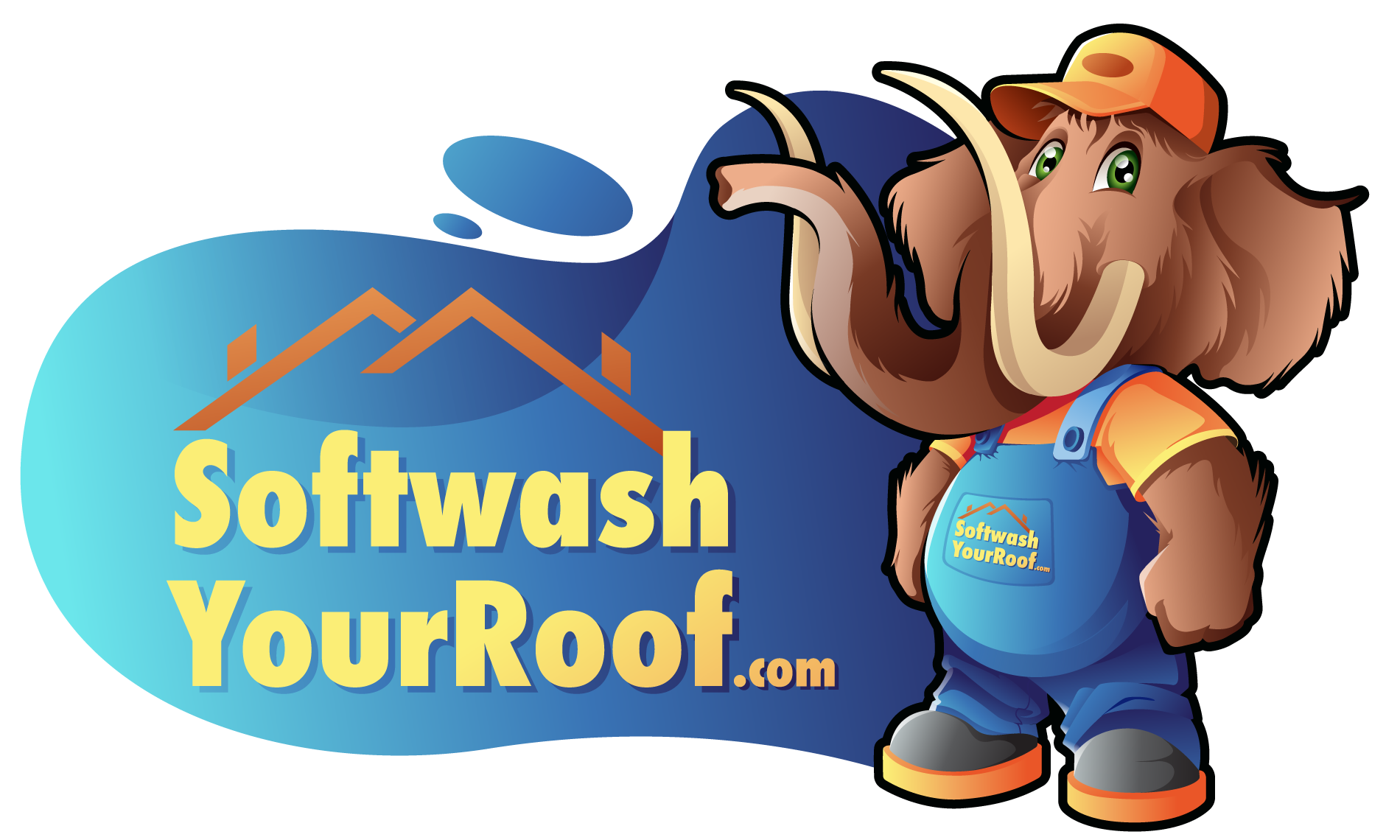

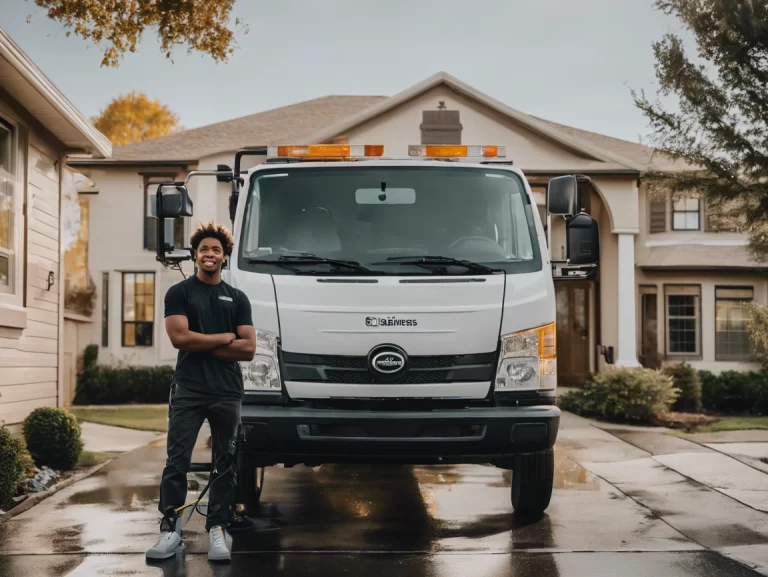
 Ready to make your mark in the world of exterior cleaning? Fantastic! Let’s delve into the empowering world of local SEO, where you’ll gain the confidence to outshine the competition and attract more clients than you can handle!…
Ready to make your mark in the world of exterior cleaning? Fantastic! Let’s delve into the empowering world of local SEO, where you’ll gain the confidence to outshine the competition and attract more clients than you can handle!…
